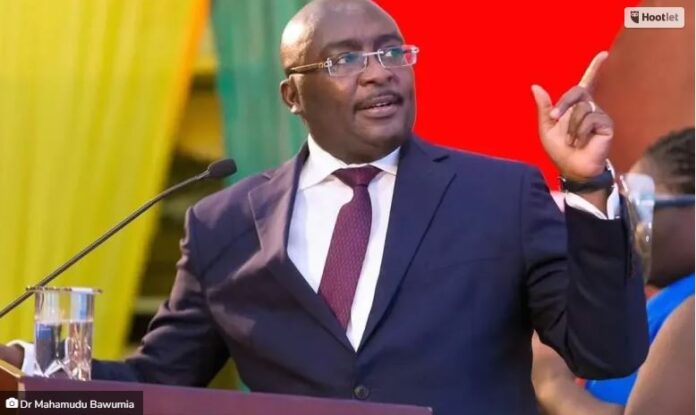
The Vice-President, Dr Mahamudu Bawumia has charged the leadership and members of the National Association of Local Authorities of Ghana (NALAG) to work with all relevant state and non-state actors to ensure accelerated development at the local level of governance.
Applying a mix of innovation, dialogue and collaboration with their peers would speed up the development process, Dr Bawumia maintained, and it is important that metropolitan, municipal and district assemblies, who have been mandated by law to lead the development charge at the local level, do so with a sense of urgency.
Addressing participants at the 21st biennial national delegates conference of NALAG in Kumasi on Thursday, 2 June 2022 the Vice President emphasized that all stakeholders need to approach their mandates with renewed vigour, especially in the wake of the ravages wrought by COVID-19 and the ongoing Russia-Ukraine conflict.
“It cannot be over-emphasized that for us to bounce back together, a great responsibility lies with our Metropolitan, Municipal and District Assemblies maximizing the development agenda at the local level.
“Decentralisation and local government administration is the fulcrum around which democracy and citizens’ participation is given expression at the grassroots. It is therefore imperative to indicate that our MMDAs are not only for political participation but agents for national economic development,” Dr Bawumia indicated.

In recognition of the crucial role played by local authorities Government has, through the Decentralization policy framework, included Local Economic Development (LED) as one of the five key pillars of the policy underpinnings of our National Decentralization Policy and Strategy (2020-2024), the Vice President explained.
“This is to move the MMDAs from provision of essential services to promotion of enabling environment for the private sector to partner with local authorities to develop and sustain businesses, create jobs and reduce poverty through mobilization of local natural and human resources, as well as, value addition.
“The global Covid-19 pandemic has presented us with an opportunity to rethink local development approaches and re-orient local economies away from unsustainable development pathways. We need conscious bottom-up’ approaches to local development in this time.
“MMDAs should move away from just providing essential services to becoming agents for development by harnessing all the natural, material and human resources within their jurisdiction to bring the needed development, create jobs, reduce poverty, increase income levels and raise the needed Internally Generated Fund (IGF) to compliment other sources of funding from central government.
“As MMDAs you must re-evaluate your local strengths and weaknesses in light of changing roles you have to play to meet the needs of your respective citizens. We are aware that some MMDAs are already engaged in the process of revitalizing their own local economy and I believe others will follow the trail. You need to reconsider the growth you desire for your District taking into consideration resilience and inclusivity.”
Manpower development
Dr Bawumia assured NALAG members and the participants, which included the Minister for Local Government and Rural Development, Hon Dan Botwe, of government’s commitment to meeting the manpower needs of local authorities, with the expansion of the infrastructure of the Institute of Local Government Studies “and the construction of a Local Government University at Akomadan in the Offinso North Municipality in Ashanti Region to augment the training capacity deficit we currently have. We are not leaving any stone unturned in bringing this to speedy fruition.”
“To mitigate inefficiency and wasted time and resources at the local level, this government has broadened the digitalization agenda to include local government service delivery. We believe that the digital transformation agenda must be tied to the services of the local authorities since they are the engine of development in the country,” he added.
The NALAG Conference brings together all stakeholders in the local governance system to brainstorm on ways to better discharge their duties as mandated by the Local Government Act 1993 (Act 462), and also elect new leaders.
Source: Asaaseradio.com



